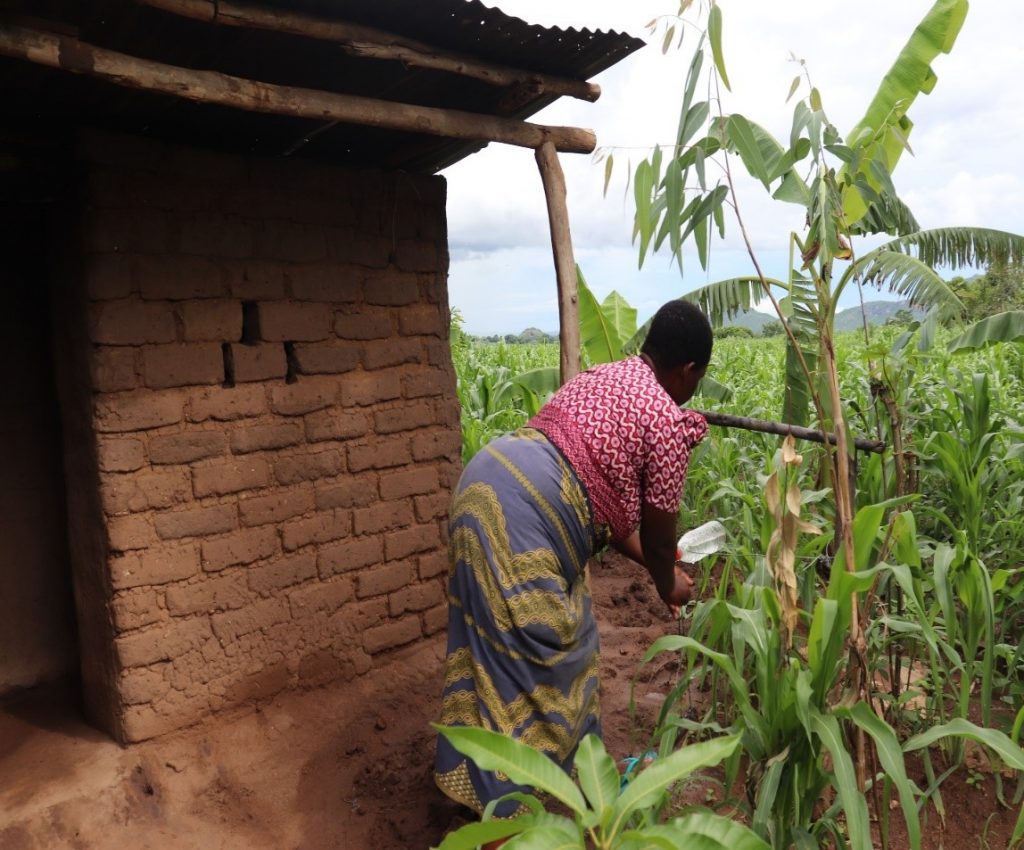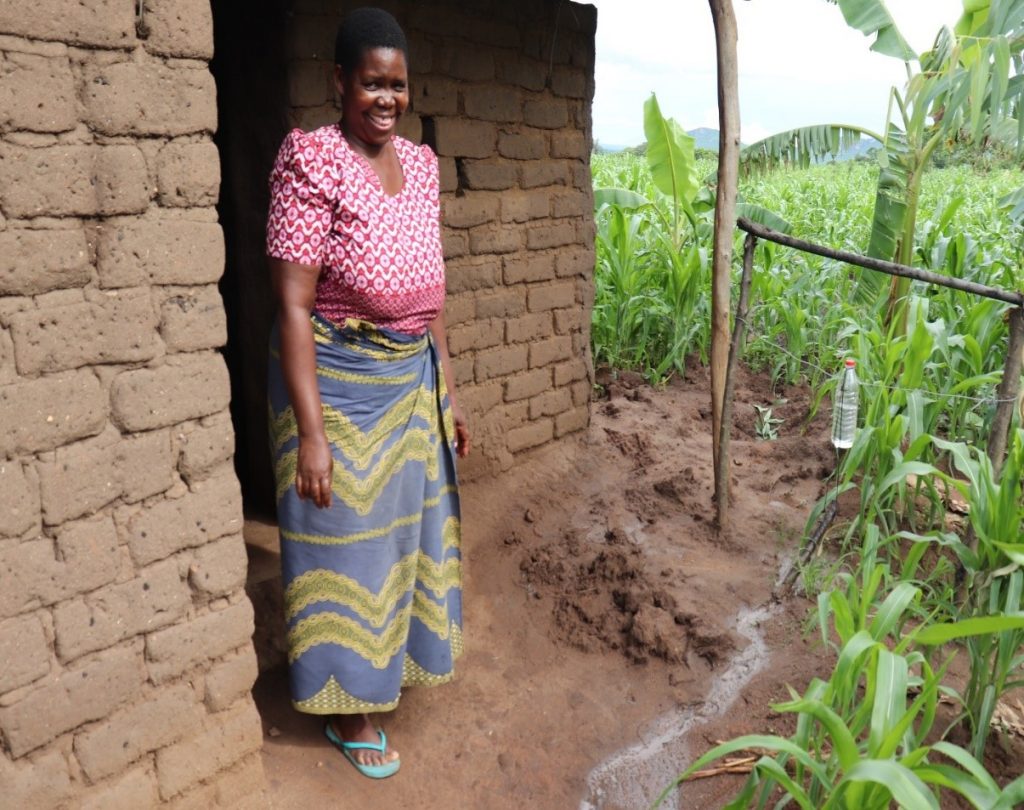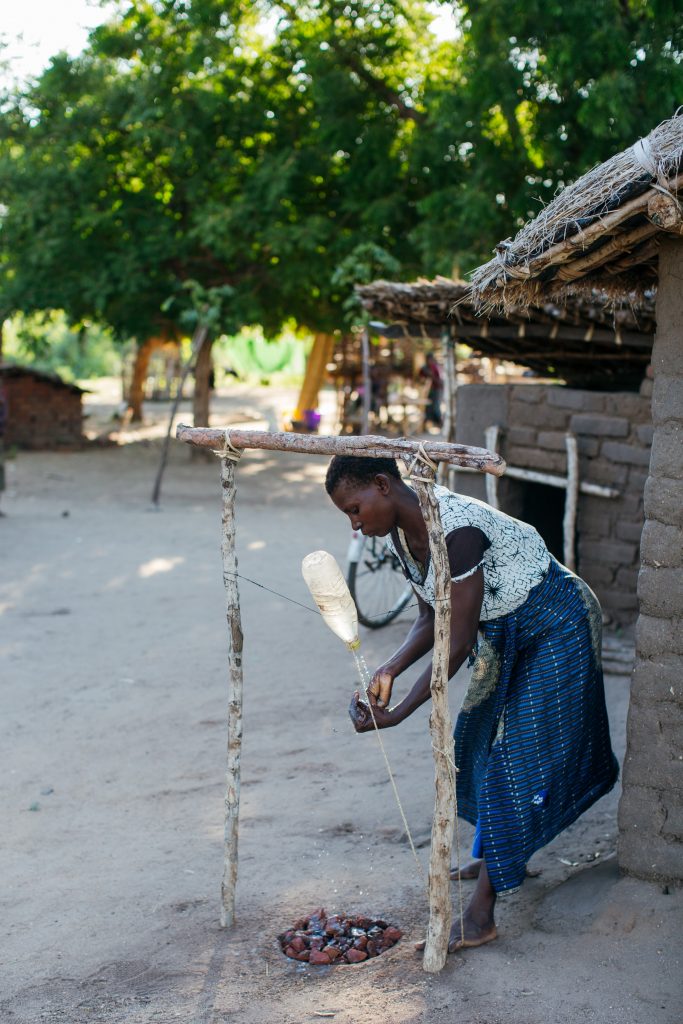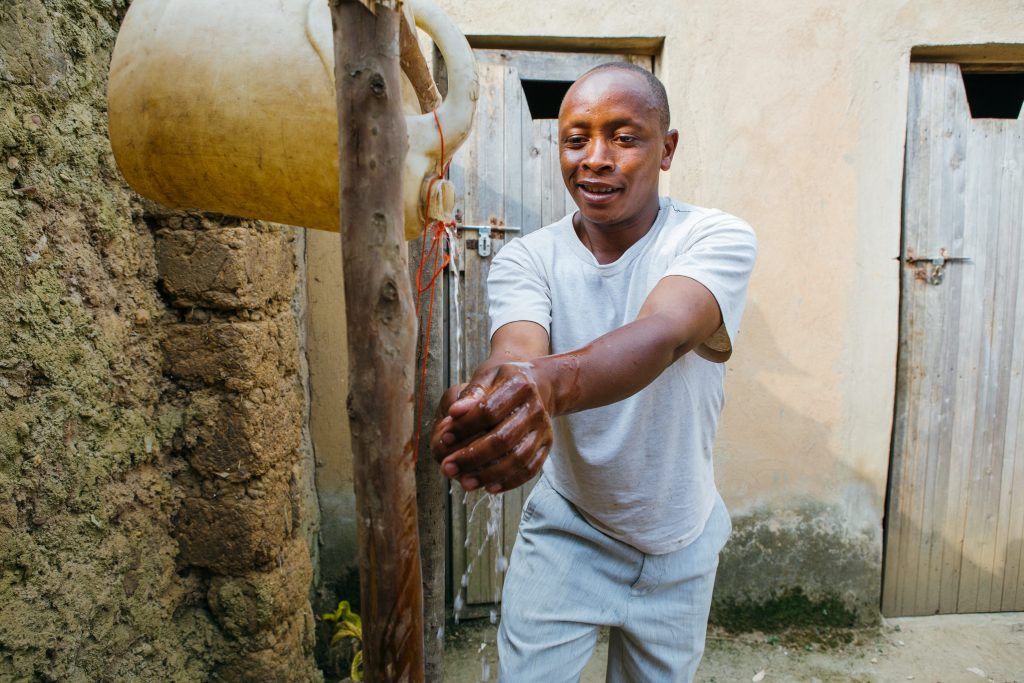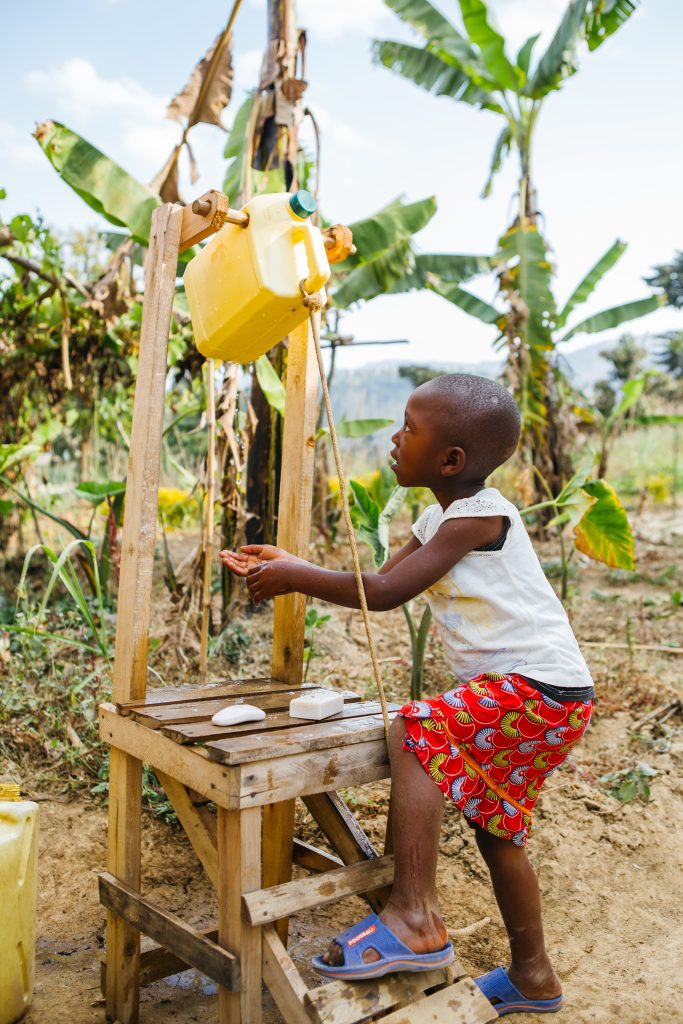For Prisca, hygiene has changed everything. A mother of five, Pricsa lives in the Misanjo village, part of the Chiradzulu District in southern Malawi. She introduces herself with a huge smile. She is proud of her role in the community and the story she has to tell.
In 2020, Water For People began working with the village of Misanjo, in collaboration with the Chiradzulu District Council. This collaboration included installing a new water point for the village, training a committee to oversee the sustainability of the water system, facilitating the construction of latrines and handwashing stations in homes, and hygiene education programs.
Prisca is happy with the installation of the water point in her village, and proud to have been elected to serve on the committee that oversees it. Bringing her even more excitement, though, are the changes that have taken place in her own home.
Prisca’s family has always had a latrine, which she now realizes was just a hole in the ground with no cover. She characterized this latrine as filthy – a housefly hub with barely enough privacy to shield someone using it. Prisca and her family held their breath when using it, as the smell was so strong it even stayed on their clothing long afterward.
Her two school-aged children missed class often from illnesses. But, until recently, Prisca had never connected the cause of the frequent diarrhea that affected her family and neighbors to the latrines.
Through this engagement with Water For People and the district government, a massive hygiene promotion campaign spread through the village. Prisca loved it and sought out every opportunity to learn.
"Through talks, music, and drama we were told how to take care of our latrines and their surroundings," Prisca shares.
"We were taught to have a drop hole cover for the latrine, and to have outside a tippy-tap handwashing station. We were told we need to clean our latrines each day – and we now practice that every day."
These improved hygiene practices have changed everything for Prisca and her family.
"Since we started following the best practices as advised, my family has never had a case of diarrhea. The toilet does not produce a bad smell as it used to, and flies have been reduced to almost none due to the cover. We can comfortably sit under the trees close to the latrine without feeling a discomfort from the bad smell."
Once she begins, it’s easy for Prisca to continue talking about the hygienic changes in her home.
"The tippy-tap is a good idea since we do not have to touch the bottle that pours the water for us to wash our hands. This is also a positive development as a preventative measure for the COVID-19 pandemic which is currently on the rise in Malawi," Prisca continues.
When driving or walking through the village, the impacts of the hygiene campaigns are easily observed. Newly constructed pit latrines are dotted throughout the area as families learn about the importance of good hygiene practices.
Prisca is eager to continue to promote healthy hygiene practices to her community through her leadership role on the committee. She knows that for her and her family, good hygiene changes everything.
A tippy-tap is a simple, economical, and effective handwashing station. Using plastic containers and a simple structure, a pedal tips the water for contactless handwashing.

